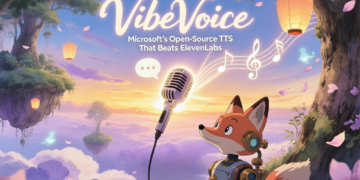Google Chrome stands at a pivotal crossroads in its history, facing potential separation from its parent company Google following landmark antitrust rulings. With an estimated value of up to $50 billion and commanding over 66% of the global browser market, Chrome has become a coveted asset that tech companies are eagerly positioning themselves to acquire. This article examines why Chrome has become such a valuable prize, which companies are lining up as potential buyers, and what’s at stake in this high-stakes tech industry reshuffling.
The Antitrust Backdrop Forcing Google’s Hand
Google has found itself in unprecedented legal trouble, losing two major antitrust cases in less than a year. In August 2024, U.S. District Judge Amit Mehta ruled that Google had illegally monopolized the internet search market by establishing exclusionary contracts with major companies like Samsung, Apple, and Motorola to keep Google as the default search engine on their devices. Just months later in April 2025, Judge Leonie Brinkema determined that Google had “wilfully engaged in a series of anticompetitive acts” that enabled it to “acquire and maintain monopoly power” in the digital advertising technology market.
These consecutive rulings have created a new reality for the tech giant: Google has been officially labeled an illegal monopolist twice, and the remedies phase of these trials could force significant structural changes. The U.S. Department of Justice has already decided to ask the judge to force Google to sell off its Chrome browser as part of the remedy to restore competition. A remedies trial for the advertising technology case is scheduled to begin on September 22, 2025, with potential consequences that could reshape the digital landscape.
Chrome’s Commanding Position in the Browser Market
Understanding why companies are lining up to acquire Chrome requires appreciating its dominant market position. As of April 2025, Chrome commands an overwhelming 66.19% of the global browser market. This dominance eclipses all competitors, with Apple’s Safari trailing at 17.25%, Microsoft’s Edge at 5.2%, and Firefox at merely 2.55%.
In real numbers, Chrome’s reach is staggering. With an estimated 3.69 billion users worldwide out of 5.56 billion internet users, Chrome functions as the primary gateway to the internet for the majority of people online. This scale represents unparalleled access to users and their browsing behaviors, making Chrome an invaluable strategic asset for any company seeking to expand its digital footprint.
The Astronomical Value of Chrome
The financial worth of Chrome has become a subject of intense speculation. According to Bloomberg Intelligence, Chrome could be worth “at least $15-$20 billion, given it has over 3 billion monthly active users”. However, DuckDuckGo CEO Gabriel Weinberg provided a much higher estimate during court testimony in April 2025, suggesting Chrome could be worth “upwards of $50 billion” based on his “back-of-the-envelope” calculation focused on the browser’s massive user base.
This valuation places Chrome among the most valuable digital assets potentially available for acquisition, though the steep price tag would naturally limit the pool of potential buyers to those with substantial financial resources or significant backing.
Why Tech Companies Are Circling: The Strategic Value of Chrome
Gateway to Users and Their Data
Chrome’s primary value proposition is straightforward: whoever owns Chrome instantly gains access to billions of users and their browsing habits. This represents not just a massive user base but also a continuous stream of behavioral data that is increasingly valuable in the age of AI and targeted advertising.
For search and AI companies, Chrome offers a treasure trove of data on user interests, search patterns, and online behaviors that could be leveraged to improve algorithms, refine product offerings, and enhance advertising effectiveness. This data access becomes particularly crucial as AI models require ever-larger datasets to improve their performance.
Integration Opportunities with AI and Search
For companies already operating in the AI and search spaces, Chrome offers unique integration opportunities that could transform their business models. The browser serves as a critical touch point with users, and owning this channel would allow for deeper integration of search and AI capabilities directly into the browsing experience.
Competitive Positioning in the AI Era
As the internet transitions into the AI era, controlling key access points to users becomes increasingly strategic. Chrome represents not just current market share but also future positioning as the internet evolves toward more AI-driven experiences. For companies looking to compete with Google in this next phase of the internet’s development, acquiring Chrome would provide a significant competitive advantage.
The Leading Contenders to Acquire Chrome
OpenAI: Eyeing Chrome for AI Integration
OpenAI has emerged as one of the most interested potential buyers of Chrome. During the Google antitrust trial, OpenAI’s Head of Product and ChatGPT, Nick Turley, testified that OpenAI and “many other parties” would try to buy Chrome if it were available.
OpenAI’s interest stems from several strategic considerations. Currently, ChatGPT can be downloaded as a Chrome extension, but Turley testified that it would be a better product if Chrome were more deeply integrated with OpenAI’s systems. Such integration would give OpenAI “the ability to introduce users into what an AI-first experience looks like”.
More critically, OpenAI currently struggles with accessing real-time search data. Turley revealed in court that OpenAI had approached Google about a partnership to power ChatGPT last summer but was turned down. OpenAI’s interest in Chrome likely connects to its longer-term goal of developing its own search technology, with the ambition to handle 80% of queries in the future. However, this capability is still “years away,” making Chrome acquisition a potentially faster route to market expansion.
Perplexity AI: Building the Next-Generation Browser
While not explicitly stating interest in acquiring Chrome, Perplexity AI is positioning itself as a direct competitor with its upcoming browser called Comet. Set to launch in May 2025, Comet is described as a “browser for agentic search” that will integrate AI-driven features to help users perform complex tasks with minimal effort.
Perplexity CEO Aravind Srinivas has already made bold claims about Comet’s capabilities compared to Chrome, stating that “Chrome is on its way out” when discussing how Comet would handle reopening old tabs through natural language requests rather than keyboard shortcuts.
Perplexity’s strategy appears focused on creating a browser that tracks user activities across the web, not just within the Perplexity app. According to reports, this approach aims to gather richer user information that can be used to deliver more relevant and profitable advertisements. This mirrors the data collection strategy that made Chrome valuable to Google’s advertising business.
Yahoo: Seeking a Second Chance
Perhaps the most publicly vocal about its interest in acquiring Chrome has been Yahoo. Brian Provost, General Manager for Yahoo Search, testified during Google’s antitrust trial that Yahoo would be willing to purchase Chrome if a federal court mandates Google to divest it.
Yahoo estimates Chrome’s value to be in the “tens of billions of dollars” and describes it as “arguably the most important strategic player on the web.” Provost noted that with the backing of Apollo Global Management, Yahoo would be capable of making a serious bid for the browser.
Yahoo’s interest represents something of a full-circle moment in tech history. The company famously had opportunities to acquire Google in its early days—once in 1998 for just $1 million and again in 2002 for under $5 billion—but passed on both occasions. Now, with Yahoo’s search market share hovering around 3%, acquiring Chrome could be viewed as a strategy to correct past missteps and potentially catapult its search market presence.
Challenges and Considerations for Potential Buyers
Regulatory Scrutiny
Any acquisition of Chrome would likely face intense regulatory scrutiny. The irony of breaking up Google’s monopoly only to have another tech giant acquire a key asset wouldn’t be lost on regulators. This reality might favor companies like Perplexity AI or other newer entrants that don’t already hold dominant positions in adjacent markets.
Integration Capabilities
The technical challenge of maintaining and evolving Chrome shouldn’t be underestimated. Google has invested years of development and has a deep bench of engineering talent working on the browser. Any acquisition would require either transferring this talent or developing comparable expertise internally.
For companies like Yahoo, which has been “pretty distant from the real action in search tech for years” and is still “internally testing a prototype browser,” this capability gap represents a significant hurdle. In contrast, AI-focused companies like OpenAI and Perplexity, which are already building next-generation search and browsing experiences, might be better positioned to evolve Chrome’s capabilities.
Privacy Implications and User Trust
The transfer of Chrome to a new owner raises significant privacy concerns. As analyst Paddy Harrington noted, this is “not as simple as selling off a product; it’s a complete platform. And it’s moving from Google, where data collection is about selling ads, to [potentially] OpenAI, where data collection is about training AI to then sell to a ridiculously wide variety of purposes. A ‘devil you know versus the devil you don’t know’ sort of deal”.
How a new owner handles user data and privacy could significantly impact Chrome’s continued market dominance. Users might migrate to alternative browsers if they perceive the new ownership as less trustworthy with their data than Google.
The Road Ahead: Timeline and Implications
The timeline for any potential divestiture of Chrome remains uncertain, though key milestones are approaching. The remedies trial for the advertising technology case is scheduled to begin on September 22, 2025. According to prediction markets like Kalshi, there’s a 47% chance that Google could be broken up this year.
Whatever the outcome, the possibility of Chrome changing hands represents a pivotal moment in internet history. Chrome has been instrumental to Google’s business model and strategy since its launch, and its separation would mark one of the most significant forced breakups in tech industry history.
Conclusion: What’s at Stake in the Chrome Sweepstakes
The potential divestiture of Chrome represents more than just the sale of a browser—it signals a fundamental shift in how regulatory authorities are approaching tech monopolies and could establish precedents for how digital markets are structured in the future.
For potential buyers, Chrome represents an unprecedented opportunity to instantly gain access to billions of users and their data. For Google, losing Chrome would mean surrendering a key competitive advantage in the evolving AI-driven internet landscape. And for users, this transition could either usher in a new era of innovation and competition or simply transfer their data from one dominant player to another.
As the tech industry awaits the outcome of the antitrust remedy trials, one thing is clear: Chrome has become the prize in a high-stakes game that could reshape the internet ecosystem for years to come. The browser that revolutionized web browsing may soon embark on its second act under new ownership, with profound implications for how we all experience the internet.


















